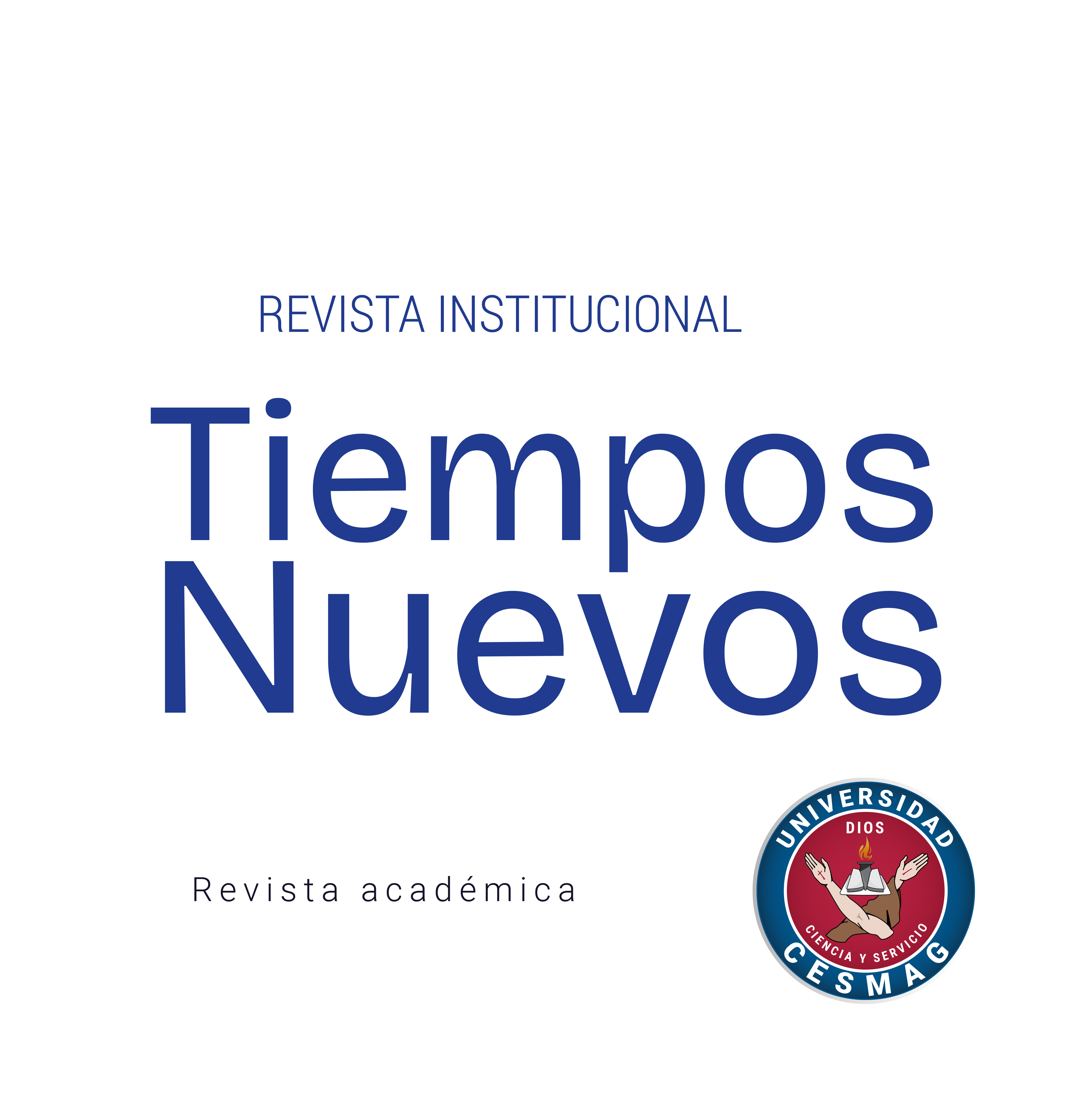Franciscanism and University
DOI:
https://doi.org/10.15658/rev.inst.tiempnuevos23.1228301Keywords:
education, spirituality, academic formation, Franciscanism, universityAbstract
Multiple socio-cultural factors and variables are involved in the development and evolution of peoples, among them, the school and the university as institutions inserted in reality, where they intervene to bring about processes of transformation and change.
This year, we are pleased to open the edition of the Revista Institucional Tiempos Nuevos a journal that invites readers to value the contribution of Franciscan spirituality in the constitution, evolution and consolidation of the university. It also highlights that the integral development of the human being also means considering their spiritual dimension, as a key element to understand the dignity and meaning of the human in relation to others and to nature. To this end, I propose to briefly outline the meaning that characterizes the relationship Franciscanism-university.
Downloads
References
Bisquerra, R. (2009). Psicopedagogía de las emociones. Editorial Síntesis S. A.
Borràs, F. (2016). Disruptores hormonales. Revista Terra Latinoamericana, 41.
Cabrera-Gómez, C., Caldas-Luzeiro, J., Rivera-Porras, D., & Carrillo-Sierra, S. (2019). Diseño del programa de bienestar psicológico de educación en salud online “Florece” para contextos universitarios. Archivos Venezolanos de Farmacología y Terapéutica, 38(5), 406-415.
https://www.redalyc.org/journal/559/55962867026/55962867026.pdf
Cabrera-Gómez, C. C., Rengifo-Rengifo, L., Suárez-Hernández, J. M., Rivera-Porras, D., & Carrillo-Sierra, S. M. (2020). Fortalezas de carácter según género en personas de salinas de Guardas: perspectiva de intervención desde el Modelo PERMA a la economía solidaria. Archivos Venezolanos de Farmacología y Terapéutica, 39(2), 226-236. https://doi.org/10.5281/zenodo.4068612
Damasio, A. (2018). Y el cerebro creó al hombre: ¿Cómo pudo el cerebro generar emociones, sentimientos, ideas y el yo? Ediciones Destino.
Fominaya Gutiérrez, J., & Orozco Perals, M. M. (1988). Efectos psicosomáticos del ejercicio. Apunts Medicina de l" Esport (Castellano), 25(095), 37-48.
Garrido, B. (2019, 19 de marzo). La indagación apreciativa. benjaGarrido. https://benjagarrido.com/la-indagacion- apreciativa/#:~:text=Las%204%20fases%20de%20la,ideal%20para%20lograr%20los%20sue%C3%B1os
González Santos, M., Vicente Alba, J., Román Fernández, E., Ortega Ruibal, F., & Alberdi Sudupe, J. (2013). Trastorno obsesivo-compulsivo (TOC) genética y ambiente. A propósito de una experiencia clínica. Revista gallega de psiquiatría y neurociencias, (12), 156-158.
Marín González, E. (2013). Control de la floración por los genes tempranillo en respuesta a señales ambientales y endógenas [Tesis doctoral, Universitat Autònoma de Barcelona]. https://ddd.uab.cat/record/116358
Martín, F. J. P. (2009). Respuestas inducidas por ácido salicílico y ácido abscísico en las simbiosis de judía y alfalfa en estrés salino [Doctoral dissertation, Universidad de Granada].
https://dialnet.unirioja.es/servlet/tesis?codigo=64183
Mulle Bernedo, M. B. (2021). Rol de los Neuroesteroides como moduladores del Sistema Serotoninérgico en un modelo de agresión en rata macho [Tesis doctoral, Universidad Nacional de Córdoba]. https://rdu.unc.edu.ar/handle/11086/20170
Quebradas, D. A. (2021). El deseo y el placer en las neurociencias. Acta Colombiana de Psicología, 24(2), 158-160. https://publicaciones.sociales.uba.ar/index.php/psicologiasocial/article/download/4547/4294
Ruiz, J., & Cano, J. (2002). Manual de psicoterapia cognitiva. R&C Editores.
Ryff, C. D. (1989). Happiness is everything, or is it? Explorations on the meaning of psychological well-being. Journal of Personality and Social Psychology, 57(6), 1069-1081. https://doi.org/10.1037/0022-3514.57.6.1069
Seligman, M. (2011). Aprenda Optimismo: Haga de la vida una experiencia maravillosa. (L. F. Coco, Trad.). Atlántida.
Sullivan, P., Neale, M. & Kendler, K. (2000). Genetic Epidemiology of Major Depression: Review and Meta-Analysis. The American Journal of Psychiatry, 157(10), 1552-1562. https://doi.org/10.1176/appi.ajp.157.10.1552



.png)
